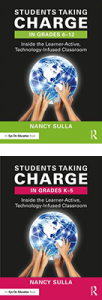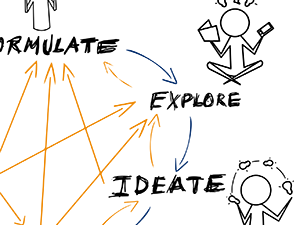
Social and emotional learning (SEL) plays a major role in one’s success in life and career. Being in touch with emotions, controlling them, setting and achieving goals, engaging with others in socially appropriate ways, demonstrating empathy toward others, establishing positive relationships, and taking responsibility in life are critical skills that are not necessarily included in school curricula. How can these critical skills be developed while students are not physically in school every day? In the hybrid learning model, synchronous instruction is redesigned to allow for, and in many cases, prioritize, Social and Emotional Learning. In this course, participants will explore a hybrid learning model, and develop strategies to prioritize collaboration, self-awareness, and responsible decision making skills. They are skills that are fostered every day in student-driven learning environments like the Learner-Active, Technology-Infused Classroom. Develop structures and strategies you can employ to build SEL in your classroom or school.
- Developing an understanding of the core competencies of SEL as defined by CASEL.
- Developing an understanding of the interplay among problem-based learning, structures, and teacher facilitation in a Hybrid Learning Environment.
- Exploring how each of the core competencies of SEL are addressed through the goals of engagement, empowerment, and efficacy in a student-driven classroom.
- Developing a set of structures for building SEL in a Hybrid Learning Environment.
- Developing a repertoire of teacher facilitation strategies for building SEL in a Hybrid Learning Environment.
- Developing learning activities that promote SEL in a Hybrid Learning Environment.
 This course will use your choice of Dr. Nancy Sulla’s books, Students Taking Charge In Grades K-5 or Students Taking Charge In Grades 6-12 as a resource. Only one is required. The assigned book must be purchased in advance. Access to MyQPortal is included for all participants while enrolled in the VLC. 25 contact hours.
This course will use your choice of Dr. Nancy Sulla’s books, Students Taking Charge In Grades K-5 or Students Taking Charge In Grades 6-12 as a resource. Only one is required. The assigned book must be purchased in advance. Access to MyQPortal is included for all participants while enrolled in the VLC. 25 contact hours.





 In this course, participants will leverage choice and technology to provide students with the ultimate differentiated learning environment. They will develop differentiated digital activity lists rooted in rigorous instruction that offer multiple ways to learn and apply content. Participants will explore autonomy, purpose, and mastery as motivators in all learning environments. They will design differentiated activity lists to put students in charge of their own learning, creating a structure that allows students to make decisions within a structured framework. Making informed decisions is an essential life skill that teachers can support with intentional classroom practices.
In this course, participants will leverage choice and technology to provide students with the ultimate differentiated learning environment. They will develop differentiated digital activity lists rooted in rigorous instruction that offer multiple ways to learn and apply content. Participants will explore autonomy, purpose, and mastery as motivators in all learning environments. They will design differentiated activity lists to put students in charge of their own learning, creating a structure that allows students to make decisions within a structured framework. Making informed decisions is an essential life skill that teachers can support with intentional classroom practices. Participants in this course will use Reinventing the Classroom Experience by Dr. Nancy Sulla as a resource. The assigned book must be
Participants in this course will use Reinventing the Classroom Experience by Dr. Nancy Sulla as a resource. The assigned book must be